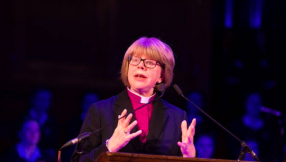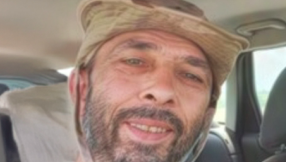Back in 1755, an earthquake destroyed one of the great capitals of Europe. Lisbon in Portugal was shaken to the ground. No one knows exactly how many people died, but estimates range up to 100,000.
It was an age of optimism. People thought the world was basically good and getting better. God was a benevolent figure who arranged the world for the benefit of human beings.
After Lisbon, it became increasingly hard to argue that. In moments, tens of thousands of people were dead.
And those questions from 250 years ago keep coming back, every time there's another natural disaster. Earthquakes, like the one that struck central Italy in the early hours of Wednesday morning, are somehow particularly potent destabilisers. When the ground on which we stand shakes, what's left to trust? And how can we reconcile the randomness of these deaths – at least 250 in Italy – with the goodness of God?
Earthquakes aren't the only natural disasters we face. There are fires and floods as well. The US state of Louisiana has just suffered its worst floods ever, killing 13 people and damaging more than 60,000 homes. Many people did not have flood insurance. California has also been reeling under a series of wildfires.
Christians respond to such events with love, care and practical help. But how do we answer the questions they raise? Here are a few suggestions.
1. Don't say God is punishing people
This was one of the responses to the Lisbon earthquake, as it was to London's Great Plague a century earlier. The idea that God is angry with people and punishes them with natural disasters goes all the way back to the Flood. But that doesn't mean it's true today. God is love, and more to the point, God is just, to everyone.
2. Don't minimise human responsibility
Some natural disasters are impossible to prepare for. Others that we could prepare for now we couldn't have done in the past. So the theological problem remains. But these disasters force us to ask, is there any more that could have been done? In Italy, attention's shifting to why more houses and public buildings weren't made earthquake-proof, when it's well known how to do this. In Louisiana, questions are being asked about why better warnings weren't given. God gives human beings responsibility for living well in his world. We can very often live better than we do. Laziness, greed or indifference have catastrophic consequences.
3. Accept the conditions of freedom
It's perhaps instinctive in us to ask, "Why did God allow this to happen?" An earthquake or a flood is perceived personally. Even if we aren't personally involved, we sorrow for those who are. But an earthquake happens when the earth's tectonic plates shift and realign. A flood happens when a weather system dumps massive quantities of water over a place that doesn't expect it. These things are the shadow-side of a fallen creation. It isn't possible to conceive of a world without destruction or pain. It's the price we pay for being alive.
4. Look for God in the tragedy
It's far too soon to say this to those who have been bereaved or injured in Italy, or who have lost everything they had and can't imagine starting again. Whole communities that have existed for centuries have been completely destroyed. Yes, it's like the world after the Flood: there was nothing left. But in time the world began again. The government will send in its bulldozers and builders and try to rebuild the shattered towns. But the longer and harder task will be the Church's, as it helps rebuild shattered lives and mediate the grace of God. We should pray for them: the pastors and priests, the faithful lay people, all those who will carry this load for years to come.
Follow Mark Woods on Twitter: @RevMarkWoods













